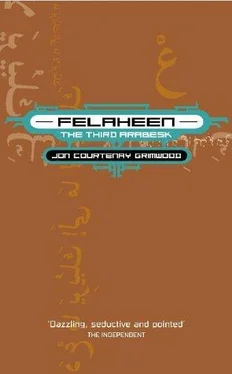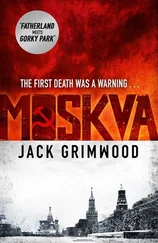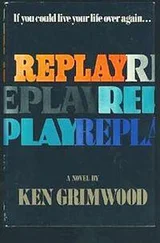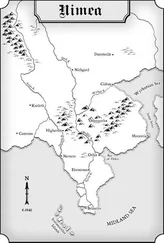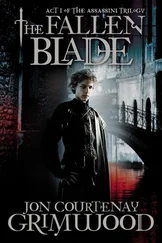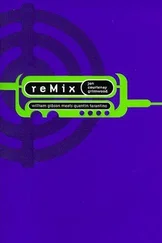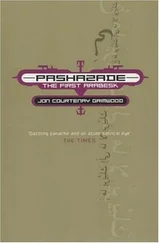"Finished staring?"
Raf smiled blissfully and across the room Sajjad laughed. "Prime kif," he said. "Idries imports it himself. Guaranteed to take away your senses . . ."
"Yeah," said the woman, "if you have any to start with."
Idries was the boy in check shirt and jeans who'd handed Raf the roach. Somehow, in a way Raf hadn't yet worked out, Sajjad was waiting for Idries' agreement on something. And Raf was still just about awake enough to know it concerned him.
"Where are you originally from?" Idries' voice was casual, unthreatening. Which was enough to make Raf try to clear his thoughts.
"I'm, well . . ."
"You can tell us," said Isabeau. It was hard to work out whether or not she was being sarcastic.
"I don't know," Raf admitted finally. "I've never known the answer to that question," he added, when Isabeau raised her eyebrows. "People ask and my mind goes empty." It would have been easier to give them the name of the village he'd told the soldier but that had gone out of his head.
"What was your father's name?" Idries demanded.
"He doesn't know his father," said Sajjad flatly. "And I saw him half kill a member of the mubahith . He's one of us."
The fat boy in the Italian suit kept hogging the sheesa and Shibli went on quietly sipping his hot mint tea from a small glass, but the others were listening and watching, weighing up his words.
Waiting.
The kif had done its job if that was to flood Raf's brain with delta-9-tetrhydrocannabinol and make him reveal the truth. Something he'd be happy to do if only he could recognize it.
"Where did your train come from?" asked Isabeau.
This Raf could handle.
"Ben Guerdane." He named a two-horse town on the Jeffara plain in the shadow of Jebel Dahar, maybe twenty klicks from the border with Tripolitana. Originally the fox's plan, such as it was, had been to bus the distance from Ben Guerdane to Kairouan, then take another to Tunis, but the night bus had already gone so Raf caught a local train instead, buying his ticket at one window, booking his cracked wooden seat at a second and confirming the ticket he'd just bought at a third. The entire cost of his ticket and seat reservation was less than a cappuccino at Le Trianon.
"That's true," Sajjad nodded. "I saw it come in."
"Where were you standing?" Hassan demanded.
"In the café overlooking the concourse. The one with the balcony."
A place with a façade that could have been lifted straight from the Marais in Paris and probably was. All green tiles and glass. As well as a whole sprawl of red-roofed suburbs, the French had managed to build a cathedral, an Art Nouveau theatre, an opera house and the Gare de Tunis by the time the Emir's great-grandfather threw them out of his city.
Raf was glad he could remember that.
"No other way onto the platform?" Shibli asked.
Sajjad shook his head firmly.
"Okay," said Shibli, "so we assume he got off that train. Let's deal with the next point." He nodded to Idries and told the boy to pass Raf the leather bag Sajjad had lent to him.
"Open it," he said. So Raf did and pulled out the submachine gun. Someone, probably Sajjad, had slotted the magazine back into place and without thinking Raf broke it down again. Separating clip from chassis.
"How did you get this?"
Raf told his story for a third time. Sajjad having been both the first and the second time.
"Didn't you realize there would be mubahith and soldiers?" Shibli looked more puzzled than anything else.
No, Raf could honestly say the thought never occurred to him. Police yes, in North Africa the police were everywhere, but soldiers questioning every felah, khamme and Berber clansman to climb from a local train . . . ? That was something else again.
"Okay," said Shibli, putting down his tea glass. "Let's take this from the top . . ." He smiled and for a split second it was possible to see the man he'd been. Someone whose hunger for meaning had taken him through all life had to offer and out into a stark stillness beyond.
"Do you want to keep the gun?"
Raf shook his head.
"Good . . ." The Shibli held out his hand, looking puzzled when Raf made no attempt to hand over the HK.
"Fingerprints," Raf explained apologetically. Without really thinking about it, Raf freed a catch on the side and dropped to his knees, field-stripping the HK on the dirty floor in front of him. When the weapon was reduced to barrel, breech, stock and chassis, Raf reached behind him and took a tiny bowl of olive oil from Isabeau's plate without even asking.
Ripping a strip from the leg of his borrowed SBCF jumpsuit he soaked it in oil and wiped over the parts in front of him. As an afterthought Raf flipped the bullets from their magazine and reloaded them, having first made sure each was clean.
Thirty seconds later the gun was whole and the room was in silence. Most of the expressions when Raf looked up were unreadable.
"You originally travelled from Egypt?"
Raf looked surprised.
"The jellaba you wore," said Shibli, "Sajjad said the pattern was Egyptian."
"Not mine," Raf said.
"Meaning what?"
"I needed some clothes so I stole them."
"And what were you wearing when you stole someone else's jellaba?"
Raf thought back to his black Italian suit, white cotton shirt and red tie, the shades, his black shoes and the gold cuff links Hamzah Effendi gave him for something he once did.
"Uniform," said Raf finally. "I was wearing uniform."
In Tunis, as in many cities along the North African littoral, salafi , those who followed al-Salaf al-Salih, the venerable forefathers talked about war as if it were always within or between religions, but those with eyes open knew it was between poverty and wealth. Yet Shibli found it hard to blame them. Soviet kids in particular came to the city on holiday, UN sanctions or not, bringing their currency and worse behaviour. Object lessons in the fact that despite the words of the saints, humility and virtue did not automatically bring material reward.
And it was hard to explain to those with nothing, that compared to the rest of Europe the 'packers and Soviet kids with their jeans and weird jackets were as poor as most Ifriqiyans were in relation to the Soviets.
Only those whose eyes were open could see these things.
"Who has marc ?" Shibli's question was so blunt that Idries mistimed his draw on the sheesha and collapsed into a fit of coughing; one that lasted longer than strictly necessary as he tried to work out the right answer. In the end, Idries did what he usually did when faced with one of the Sufi's questions. Told the truth without knowing if that was the right thing to do or not.
"I have a small flask . . ."
Shibli held out his hand.
Spirits were prohibited in Tunis by tradition not law. Those who wanted to drink marc or armagnac could go to a café or visit the bar of a big hotel. The Emir's reasoning was simple. Those who wanted to drink could while those who knew spirits to be evil didn't need his law to tell them this. Besides, the Soviets all drank heavily. In his own way the Emir was a very pragmatic man.
This was the cause of his wife's discontent. Or so it was said. Shibli didn't know if her son, Kashif Pasha, also believed what the old mullahs told his mother or if His Excellency was just using them as they used him. It was, as he'd once heard Isabeau say, a bitch of a call. What was unquestionably true was that most of the army believed, but then uniforms and absolutes seemed to go together, whether God willed or not.
Flipping open Idries' flask, Shibli took a long swallow and felt cheap brandy burn his throat on its way down. Seconds later it ignited his stomach, which served him right for forgetting, once again, to eat before leaving his madersa.
Читать дальше
